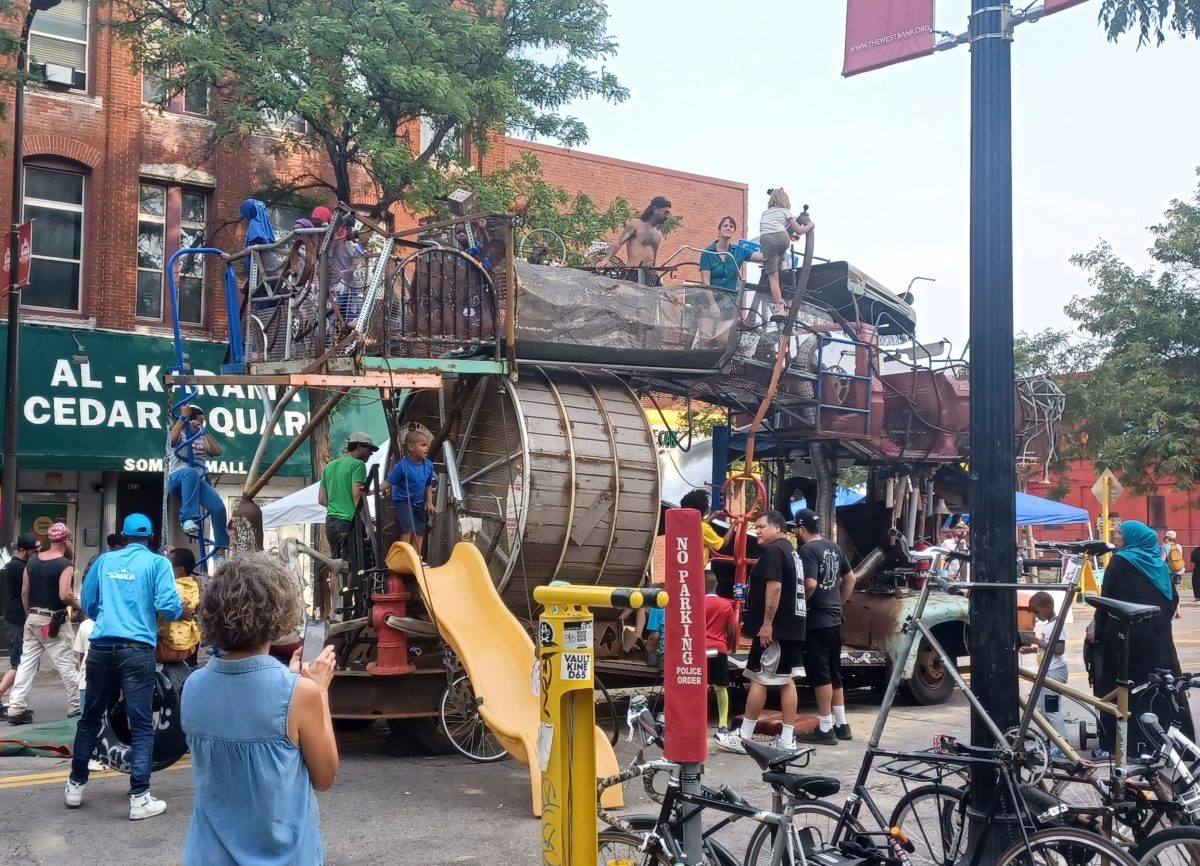Our Streets Minneapolis is starting to organize a block party for September after the city announced on Jan. 25 they would not be selected for the city’s Open Streets events.
The block party, to be held on Sept. 8, is being organized by Our Streets in collaboration with the West Bank Business Association (WBBA).
Our Streets Minneapolis was organizing Open Streets events as an unpaid vendor hosting events with festivals of games, food and music on closed streets until last year when their budget request led the city to end their contract, according to Our Streets Executive Director José Antonio Zayas Cabán.
Zayas Cabán said part of the reason they sought funding was to elevate marginalized and underserved communities.
Our Streets’ new Imagine series is block parties focusing on empowering communities and helping them connect to street redesign processes. The series will take place at Glenwood, Cedar-Riverside and Eat Street.
This event is focused on producing the community’s vision for the neighborhoods and creating a positive platform to celebrate the collaborative process, according to Zayas Cabán.
K.J. Starr, executive director at the WBBA, said a big priority for the WBBA was to promote local businesses. Last year there were three stages that featured Red Sea, KFAI Radio, Tamu Grill, Palmer’s Bar and Cedar Cultural Center.
“One of the main goals from our perspective was to provide a great party for people who are West Bankers, residents, businesses and people who already come here, but also just show how much fun this neighborhood is to people who are new,” Starr said. “That’s why it was really important for us to continue this event in 2024.”
The neighborhood has long been a center for arts, culture and new immigrant businesses, so they are excited to get to help and support a celebration of that, said Ember Rasmussen, community development and events senior manager at Our Streets Minneapolis.
“Whether you’re an immigrant or you’re a punk rocker or whatever your alternative to the mainstream is, West Bank has always been a home for so many different people,” Starr said.
According to Rasmussen, the goal of the Imagine series is to spark the imagination of communities about how they want to continue to grow together and how to create physical space to be welcoming and connected to one another.
Rasmussen said streets and highway infrastructure impacts the way people experience communities and Cedar-Riverside is a great example of how it has been cut off from other parts of the city.
“We need to be intentional about hosting events in places like Cedar-Riverside or north Minneapolis and hopefully in the future in St. Paul so that we could both highlight the cultural diversity and the richness from these communities, but do it in a way where there is no financial burden on these communities,” Zayas Cabán said.
Last year, the event featured a mobile history museum showcasing the history of Cedar-Riverside and retelling the story of the neighborhood, Starr said.
Rasmussen said it is important for people to re-engage with the history of these places to recognize there were choices made to set things up the way they are now and they do not have to stay that way.
Other activities at last year’s event included local restaurants, beer gardens, live music, a dunk tank, a camel, Southside Battletrain’s human-powered train and a weiner dog race.
“It was just like so West Bank,” Starr said. “Everybody of every kind of person all mixed together and happy to party together in the streets.”
Our Streets has the resources and expertise to do the event logistics and coordination, but their goal is for the community to determine the actual experience, Rasmussen said.
“It’s a really exciting opportunity for folks all along the I-94 corridor to share their thoughts and ideas about what they want the future of that space to look like,” Rasmussen said.
Zayas Cabán said improvements might be made from a point of view of infrastructure, but the same communities pay the price. They want to make a commitment to making sure these voices are heard, but also that there are actual outcomes and the communities benefit from them rather than being harmed or displaced.
“If we want to be in a place where we’re not making the same mistakes and causing the same harms that were caused by these projects 60 years ago, then being able to revisit history and look how it happened in the first place is essential,” Rasmussen said.
Rasmussen said they are excited to work with the people at Cedar-Riverside and for students from the University of Minnesota to join the party as members of the community.
“The thing that I’m looking forward to is just walking down the street and seeing folks smiling and listening to music, and maybe finding a restaurant or a business that they didn’t know was there and just being connected to one another,” Rasmussen said. “I think that’s the most beautiful thing about the Imagine series and Open Streets events.”








